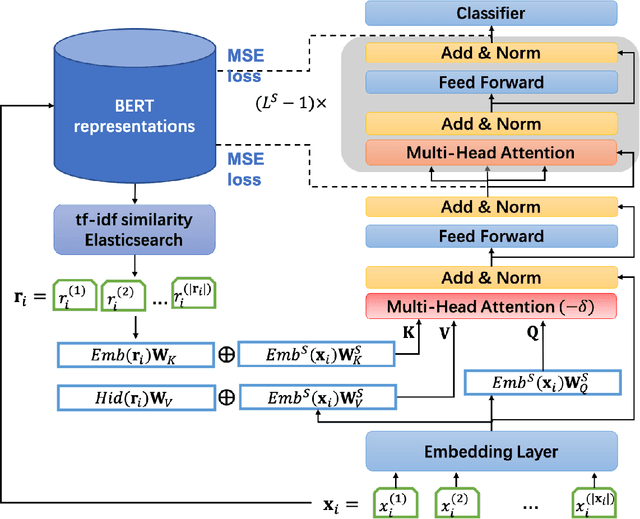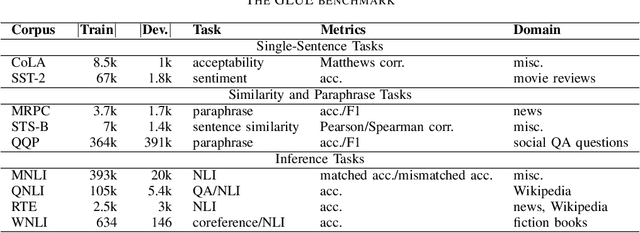RefBERT: Compressing BERT by Referencing to Pre-computed Representations
Paper and Code
Jun 11, 2021



Recently developed large pre-trained language models, e.g., BERT, have achieved remarkable performance in many downstream natural language processing applications. These pre-trained language models often contain hundreds of millions of parameters and suffer from high computation and latency in real-world applications. It is desirable to reduce the computation overhead of the models for fast training and inference while keeping the model performance in downstream applications. Several lines of work utilize knowledge distillation to compress the teacher model to a smaller student model. However, they usually discard the teacher's knowledge when in inference. Differently, in this paper, we propose RefBERT to leverage the knowledge learned from the teacher, i.e., facilitating the pre-computed BERT representation on the reference sample and compressing BERT into a smaller student model. To guarantee our proposal, we provide theoretical justification on the loss function and the usage of reference samples. Significantly, the theoretical result shows that including the pre-computed teacher's representations on the reference samples indeed increases the mutual information in learning the student model. Finally, we conduct the empirical evaluation and show that our RefBERT can beat the vanilla TinyBERT over 8.1\% and achieves more than 94\% of the performance of $\BERTBASE$ on the GLUE benchmark. Meanwhile, RefBERT is 7.4x smaller and 9.5x faster on inference than BERT$_{\rm BASE}$.
 Add to Chrome
Add to Chrome Add to Firefox
Add to Firefox Add to Edge
Add to Edge